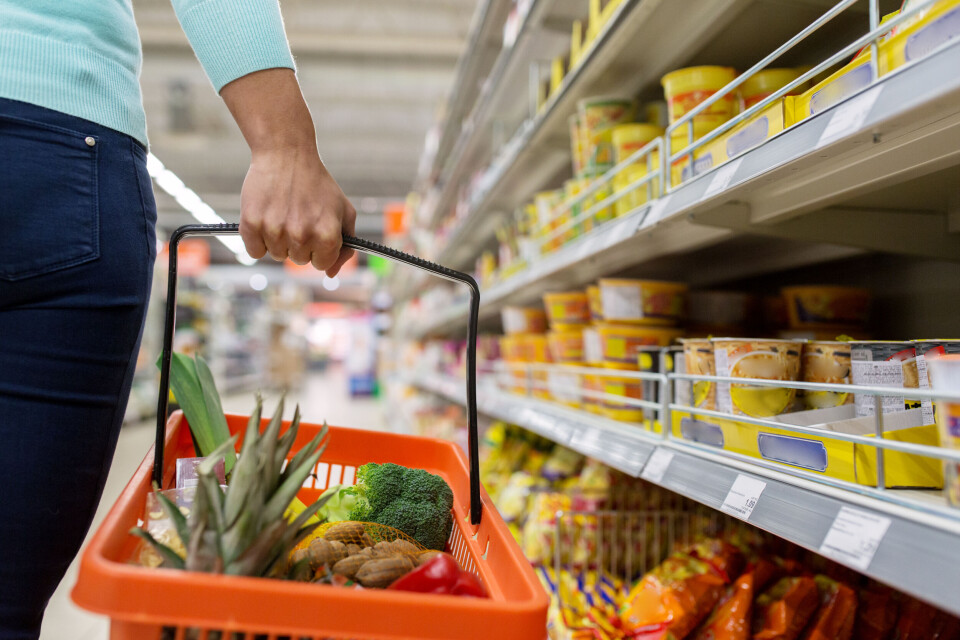-
More than 5,000 French communes use AI to identify poor rubbish sorting
Badly-sorted rubbish can cost millions so communes are turning to high-tech solutions
-
The culinary delights of dandelions in France
Laura Washburn Hutton shares her top tips for using seasonal tender leaves in the kitchen
-
Tax on well-off retirees under consideration for 2026 budget
‘Nothing is off the table’ when it comes to finding €40 billion in savings says Labour Minister
More details revealed on plan for 50 low-cost shopping items in France
The idea could be trialled from March as a way to help families cope with rising food prices

An ‘anti-inflation’ basket of 50 everyday supermarket items in France could be out in place from March, the minister in charge of consumer affairs has said.
Olivia Grégoire told Europe 1 that the concept would be “a basket of 50 everyday items, which corresponds with the needs of a family with children and at low prices”.
However, in contrast to previous reports on the subject, Ms Grégoire said that the prices would be “low”, but not “at cost price or knock-down prices”.
Le panier anti-inflation verra peut-être le jour au mois de mars, souhaite Olivia Grégoire https://t.co/B8iWj4Z9N7
— Europe 1 (@Europe1) January 30, 2023
She said that the basket could be introduced for a trial period of three months from March. It would not be means-tested and everyone would have access to it. The items could be bought separately or all together.
What would the basket contain?
The aim of the basket of goods is that people in France can have a range of everyday goods at reasonable prices. “There must be quality products, which are fresh and organic. It must be not only a low-cost basket but a useful, everyday basket”, said Ms Grégoire.
This is despite the rising cost of food and grocery items due to inflation. It is set to include fresh products, dairy, meat and essentials like nappies and pet food.
Each supermarket would be required to provide the same things in the basket. For example, if Carrefour decided to add eggs, then other supermarkets would need to do the same.
However, the basket would not include premium, non-essential branded products like Nutella or Coca-Cola.
Supermarket boss says idea is not viable
The minister sought to reassure supermarket bosses as some – especially Michel-Edouard Leclerc of E. Leclerc – have voiced concerns about the idea.
Mr Leclerc said that he had previously been in favour of such a plan but that it was no longer viable.
He told Le Point: “I was in favour of the idea, which I thought was good, when Olivia Grégoire’s team originally contacted me about it in autumn. But the goalposts have changed.
“Prices from our suppliers are going to rise by 15% on average in March. And with this law, we would lose the advantage of major money-off promotions and our 10% margin. No supermarket can accept the prospect of adding a basket of low-cost items to this [situation].”
But Ms Grégoire said: “Supermarkets’ right to competitiveness will be maintained. I want to protect suppliers. It’s not up to the government to regulate items. Low prices do not come at the expense of our farmers or producers, and their margins must be maintained.”
Food prices up by 12%
Seven out of 10 common food and household items rose by more than 10% between January and November 2022 due to inflation, a new report shows. Some, such as toilet paper, rose by considerably more (25%).
Cooking oils, frozen meat, margarine and animal fats, flour, pasta, and couscous were among the products that have risen the most.
Read more: Inflation in France: which foods have risen most, will rises continue?
It comes as a new type of low-cost supermarket, named Toujust, is set to launch in France in March. It is aiming to sell products by up to 5-10% cheaper than typical supermarkets by working directly with producers.
Related articles
List of supermarket foods set for more price rises in France
Which supermarket in France is the cheapest? Tests show 17% difference
























